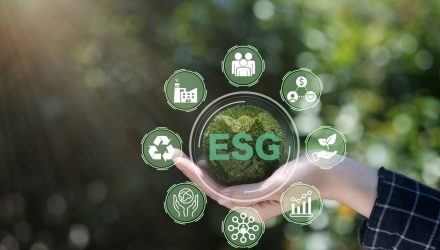Combining the ongoing upside of environmental, social and governance (ESG) with the growth potential of emerging markets (EM) could make for stellar returns. This is exactly what the FlexShares ESG & Climate Emerging Markets Core Index Fund (FEEM) can do for investors.
EM countries like China are already green investing, which should prove to be a major growth driver. FEEM has 25% of the fund’s exposure to China as the second-largest economy paves the way for more green investing in EM.
“As a result of COVID, a lot of governments are fiscally constrained, they do not have the resources to build new infrastructure, new power, new ports, new rail infrastructure and so on, and that is where the bank plays a critical role,” says Vice President and Chief Financial Officer of the New Development Bank (NDB) Leslie Maasdorp.
“In Central Asia and South Asia we see strong interest in new finance on the sustainable front because many of these countries need to green their economies and that is one of our specialties. We’re helping countries to move towards the green economy as we all battle with the transition towards net zero,” Maasdorp says.
Combining ESG and EM Forces
FEEM uses a discerning screener to add its holdings to the fund. Per its fund description, the ETF seeks investment results that correspond to the Northern Trust ESG & Climate Emerging Markets Core
Index.
One of the highlights of FEEM is its low expense ratio of 0.18%. Given the potential for more growth in ESG and EM, it’s an ideal option for investors looking for a cost-effective solution for targeted exposure to both themes.
Highlights of FEEM:
- Designed as a cost-effective core building block of a portfolio incorporating risk controls that aims to reduce tracking error and deliver market-like exposure relative to the starting universe.
- Applies a multi-dimensional ESG Framework incorporating exclusions across ESG controversies and business involvement.
- The Northern Trust ESG Vector Score is focused on financial materiality and aligned with industry standards Sustainability Accounting Standards Board (SASB) and Task Force on Climate Related Disclosures (TCFD), integrating not only historic metrics and indicators, but also those that assess how exposed a company may be to future risks and opportunities.
- Places intentional emphasis on reducing climate transition risk by reducing ISS carbon emissions intensity and improving ISS Carbon Risk Rating.
For more news, information, and strategy, visit the Multi-Asset Channel.

